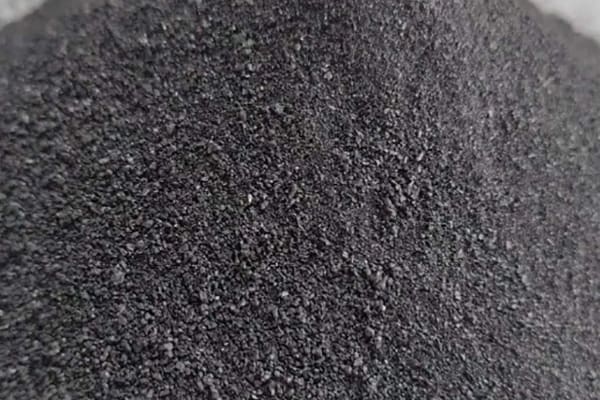Electrode powder is a key material in various industrial and technological applications, particularly in fields involving electrical conduction, electrochemistry, and energy storage. Whether used in batteries, welding, or chemical analysis, electrode powders play a critical role in enhancing the performance of electrodes in various devices and systems. In this article, we’ll explore what electrode powder is, its properties, and the diverse range of applications in which it is used.
What Is Electrode Powder?
Electrode powder refers to fine particles of materials that are conductive or semi-conductive, capable of facilitating the flow of electricity in an electrode. These materials are usually made from metals like carbon, copper, zinc, nickel, or graphite, though non-metallic compounds are also used in some cases, depending on the application. The powder form increases the surface area of the material, which improves its conductive capabilities, making it more efficient for its intended purpose.
The use of electrode powder is widespread across industries such as energy storage, metalworking, and electronics, as it provides a critical solution for processes that require precise control of electrical conduction.
Key Properties of Electrode Powder
The effectiveness of electrode powder is determined by several key properties:
- Conductivity: The most important property is its ability to conduct electricity. Depending on the material, the powder can exhibit different levels of conductivity, which directly impacts its efficiency in applications like batteries or welding.
- Particle Size: The finer the powder, the greater its surface area. This increased surface area allows for more contact between the powder and other materials, improving electrical transfer.
- Thermal Stability: In some applications, particularly welding and high-energy storage, electrode powders must withstand high temperatures without breaking down or losing their conductivity.
- Corrosion Resistance: Especially in chemical environments, the powder should resist corrosion to maintain its performance over time.
- Chemical Reactivity: For electrochemical applications like batteries, the chemical reactivity of the powder is crucial. It must interact appropriately with other elements in the system to enable energy storage or production.
Applications of Electrode Powder
1. Batteries and Energy Storage
One of the most important uses of electrode powder is in batteries, particularly in the production of electrodes for lithium-ion batteries, lead-acid batteries, and fuel cells. In these applications, electrode powders made of materials like graphite, lithium, or cobalt are mixed into a paste and applied to a substrate, which forms the electrodes of the battery.
In lithium-ion batteries, for instance, graphite powder is used as an anode material due to its high conductivity and ability to store lithium ions. The fine powder structure allows for a more significant interaction between lithium ions and the anode, which boosts the battery’s overall efficiency and energy density. Similarly, electrode powders play a key role in improving the performance of next-generation energy storage systems such as supercapacitors and solid-state batteries.
2. Welding and Metalworking
Electrode powder is also commonly used in welding applications, particularly in arc welding. In this process, electrode powders such as metal oxides or iron powders are added to the welding rod to improve the quality of the weld. The powder enhances the stability of the arc, prevents oxidation, and contributes to the overall strength and durability of the weld.
In some welding techniques, such as shielded metal arc welding (SMAW) or flux-cored arc welding (FCAW), the powder also helps protect the weld from environmental contaminants. As the arc generates heat, the powder reacts to form gases and slag that shield the weld pool from oxidation, ensuring a cleaner, stronger weld.
3. Electroplating and Metal Coating
Electrode powder is widely used in electroplating, a process where a thin layer of metal is deposited onto a surface using an electric current. In this case, the electrode powder is often made of the material that will form the coating, such as zinc, nickel, or copper.
For example, in zinc electroplating, zinc powder is used to coat steel or iron surfaces, providing a layer of protection against corrosion. This application is common in the automotive and construction industries, where metal components are frequently exposed to moisture and require a protective layer.
4. Chemical Analysis and Sensors
Electrode powders are also integral to various forms of chemical analysis and sensor technology. In analytical techniques like electrochemical sensing and cyclic voltammetry, electrode powders can be used to improve the sensitivity and accuracy of the electrodes.
Electrodes made from powders like platinum or carbon are employed in sensors to detect chemical changes in solutions, gases, or biological materials. These sensors are critical in fields such as environmental monitoring, medical diagnostics, and industrial process control.
5. Fuel Cells and Hydrogen Production
In fuel cells, which convert chemical energy into electrical energy, electrode powders like platinum or nickel are used to create electrodes that facilitate the necessary electrochemical reactions. These materials must be highly conductive and stable under the operating conditions of the fuel cell.
Electrode powders also play a role in water electrolysis, where electricity is used to split water into hydrogen and oxygen. In this process, the electrode powders help improve the efficiency of the electrolysis by enhancing conductivity and reducing the energy required for the reaction.
Conclusion
Electrode powder is a vital material with a wide array of applications in industries such as energy storage, welding, electroplating, and chemical analysis. Its ability to enhance electrical conduction, combined with its thermal stability and reactivity, makes it indispensable in modern technology and manufacturing processes. As industries continue to innovate, particularly in energy storage and green technologies, the role of electrode powders will likely expand even further, pushing the boundaries of what is possible in electrochemical systems and beyond.
Post time: 10-11-2024




